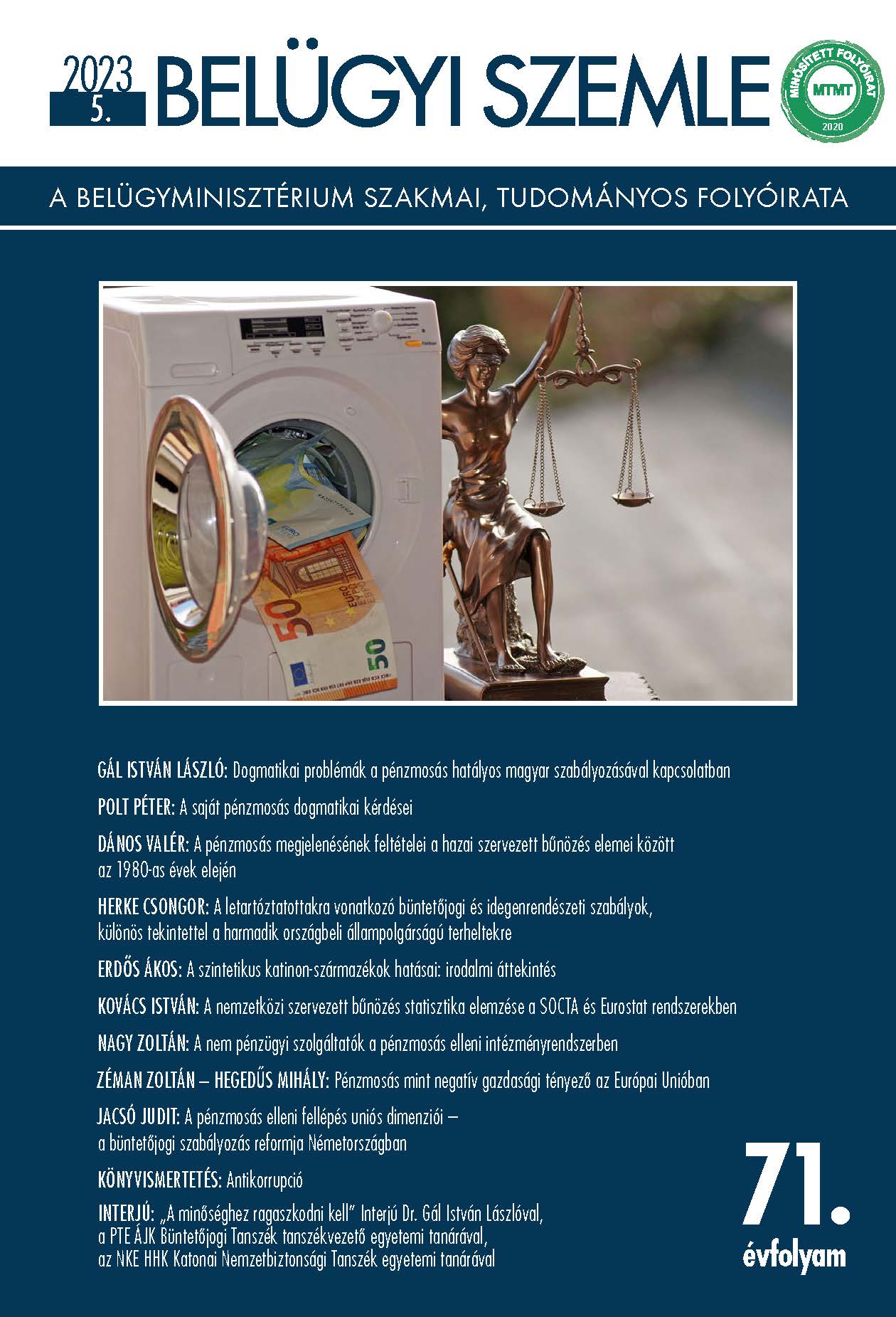Abstract
Aim: The study briefly sums up the position of the designated non-financial businesses and professions (DNFBPs) within the anti-money laundering framework while describing the main risks associated with these type of service providers. The study covers the willingness of the DNFBPs to file suspicious activity reports (SARs) to the financial intelligence unit and tries to assess potential solutions to mitigate money-laundering related risks.
Methodology: The study examines the relevant international literature, guidances, the legal acts of the European Union and Hungary. The study also uses statistical data available to the Hungarian Financial Intelligence Unit. The statistical data originating from the database of the Hungarian Financial Intelligence Unit are based on either data submitted by the obliged entities (e.g. electronic register of designated persons, submitted of SARs) or based on data recorded by the Hungarian Financial Intelligence Unit on the conducted procedures. The datasets are partially recorded automatically by the IT infrastructure and partially recorded manually. The manually recorded datasets are checked again to ensure accuracy of the data. Hence, the data originating from the database of the Hungarian Financial Intelligence Unit can be deemed reliable. The study uses descriptive statistical methodology.
Findings: It can be established that designated non-financial businesses and professions face considerable money laundering risk that causes a substantial vulnerability in the anti-money laundering framework not only in Hungary, but in the EU and worldwide. The deficiencies among others cause an exceptionally low willingness to submit suspicious activity reports. Recognizing the vulnerabilities, the relevant international organizations and the EU urges actions that lead to tighter supervision on non-financial businesses and professions and closer cooperation between the supervising authorities. These actions aim to reduce the money laundering risks posed by the sector.
Value: The study examines several years’ statistical data and compares them to the actual trends prevalent in the field of non-financial businesses and professions and draws attention to a sector overlooked in the aspect of money laundering risks.

